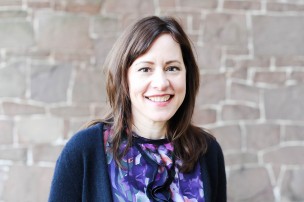
On Feb. 26, the University’s Feminist, Gender, and Sexuality Studies (FGSS) Program will premiere its new series, titled “Social Death and Survival: Race/Sex/Gender/Vulnerability,” beginning with a roundtable conversation between faculty and students. The six faculty members speaking at the forum are Visiting Scholar in Women’s Studies Alexandre Baril, Assistant Professor of English Rachel Ellis Neyra, Assistant Professor of American Studies Megan Glick, Assistant Professor of American Studies Laura Grappo, Chair of Feminist, Gender, and Sexuality Studies Victoria Pitts-Taylor, and Associate Professor of Anthropology Margot Weiss.
According to Weiss, the series is relevant to recent events and subsequent discussion about police brutality.
“It’s always important, but is especially important [now, because of] the ongoing criminalization and the increased attention toward police violence and surveillance,” Weiss said. “I say it that way because it’s been going on for a very long time but has sort of entered into the public sphere in a different way. So hopefully the talks and conversations will give us some tools or some new ways of thinking about these histories or ways to analyze them or to contest them.”
Grappo expanded upon the concept of “social death,” the theme on which the series is based.
“I think this idea about social death, about how…we come to understand the paradigms in which human life is understood as different and varied, in which certain types of people have a far higher cultural value than others, have been discussed for a long time, but this formalization of the concept of social death is a good way to think about it,” Grappo said. “It’s one of those terms [that] really helps us and encapsulates a notion about how we think about particular people in important ways.”
The series will continue on Thursday, March 26, with a lecture by Dr. Lisa Marie Cacho, Associate Professor at University of Illinois at Urbana-Champaign and author of “Social Death: Racialized Rightlessness and the Criminalization of the Unprotected.” Following that event, speakers Elizabeth Wilson, Chair and Professor of Women’s, Gender and Sexuality Studies at Emory University, and Jasbir Puar, Associate Professor of Women’s and Gender Studies at Rutgers University, will visit the University in April.
“Our speakers are [all] really excellent scholars who do work on the intersections between race and class and gender and sexuality, and they’re sort of wrangling these really important topics and looking at them through this guise of, ‘How do we value human life, and how do we think about the different ways in which culture assigns different types of people a particular value and others a detracted value?’” Grappo said.
Weiss expanded on the merits of the visiting scholars.
“Jasbir Puar, well-known in queer studies for her work on homonationalism…wrote ‘Terrorist Assemblages: Homonationalism in Queer Times,’” Weiss said. “She has been working on concepts of debility, which is a way of thinking about disability but continuing this question of disposability.”
In a recently written article, which will provide the foundation for his participation in the event, Baril described the modes in which he approaches the concept of social death.
“I argue that transness, like disability, has too often been perceived through the lens of two ‘extreme’ conceptions, medical or social, without the benefit of a third option to theorise the subjective experience of trans people’s suffering, as is the case in disability studies,” Baril wrote.
Because the topics are so intertwined with current events, Grappo expects the series to attract a wide variety of students.
“I think that many of our students would be very interested in this, and I think they would get a lot of value out of the talks because these issues are so important right now not only in the scholarly moment but in the political moment as well,” Grappo said.
The talks similarly relate to academic life on campus. Weiss argued that the topics discussed in the series will fit into many students’ academic pursuits.
“It also ties into a whole series of classes,” Weiss said. “I coordinate the Queer Studies course cluster, and almost all the classes in the cluster this semester connect to these topics. The rising incarceration of certain populations, the prison industrial complex, so-called because there is a lot of profit to be made from expanding the prison system and from the kind of labor that prisoners do, [these topics] connect directly to classes and to ongoing issues that form my research and other people’s research and writing.”
Grappo explained how the topics normally affiliated with the FGSS program are also interconnected with the topics of racial and class oppression.
“When we talk about FGSS, people think we’re talking about gender and feminism which, of course, we are, but we have to talk about issues like racial oppression because they are, in my opinion, also about gender and feminism, and I think, to me at least, the value and the really compelling aspect of having these events is that we see the many broad areas an FGSS analysis can encompass,” Grappo said. “Things like racialized bodies, ideas of class, ideas of having no social and political worth, to me, these are feminist issues because feminism is about equality. They go together.”
Additional reporting by News Editor Tess Morgan.


Leave a Reply